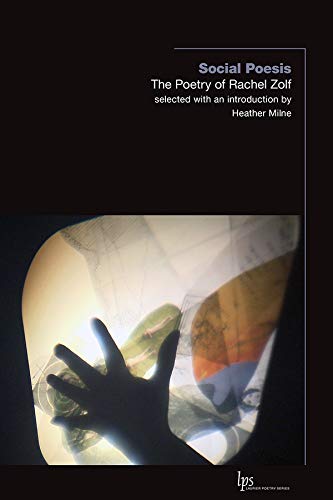
Social Poesis
The Poetry of Rachel Zolf
Through selections from across Rachel Zolf’s poetic oeuvre, this book foregrounds the philosophical, ethical, and political questions that inform Zolf’s poetry. Selections range from early poems in which Zolf explores transhistorical trauma and queer subjectivity to more recent writings that examine militarism, settler colonialism, and other forms of state-sanctioned violence. Zolf’s poetry enacts what they call a “social poesis”; they are attuned to questions of ethical responsibility and the role, and limitations, of poetry as a tool for ethical thinking, political engagement, accountability, and bearing witness.
Heather Milne’s introduction examines Zolf’s compositional strategies, tracing the evolution of Zolf’s writing from an autobiographical poetics, in which Zolf as subject/speaker is locatable, toward a poetics that moves beyond the self to address political and ethical relations among subjects of geopolitics and settler colonialism. In their afterword, Zolf focuses on their most recent work, in which poems are composed almost entirely from archival sources and enact a kind of collective assemblage of enunciation.
“I’ve long been fascinated by Zolf’s project-based work, something that has become more overt as she continues to publish, utilized to examine human interaction, and a variety of social and cultural histories. Zolf might utilize external means to produce work, but her concerns are deeply human, from the intimate to the professional to the historical, and the dark elements that so often are deliberately set aside… This book exists as both an impressive overview of Zolf’s ongoing work, and a wonderful introduction to what she’s accomplished so far, much of which, I would argue, hasn’t received the attention it so clearly deserves.”
– rob mclennan
